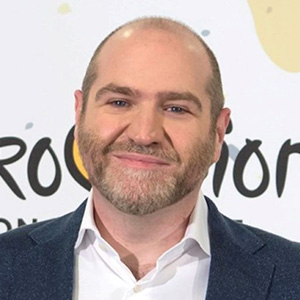EBU research shows strong public service media contributes to a healthy democracy
08 August 2016Well-funded and strong public service media goes hand in hand with signs of a healthy democracy – that’s what a recent study by the European Broadcasting Union (EBU), the world’s leading alliance of public service broadcasters, shows.
The EBU’s research has found that in countries with a strong Public Service Media (PSM) there is:
- a high degree of press freedom
- higher voter turnout than in other countries with weaker PSM
- lower levels of right-wing extremism
- better control of corruption
“These correlations are especially interesting given the current public debates about low participation in elections, corruption and the rise of far right politics across Europe” says Roberto Suárez Candel, head of the EBU Media Intelligence Service who conducted the research.
“A strong and well-funded public service media is not only about providing people with news, documentaries and entertainment– it’s also about contributing to democracy. While we can’t say that strong public TV and radio directly leads to greater democracy and less corruption, we have been able to show, for the first time, how these factors are connected.”
The study uses data from across Europe. The EBU drew on a number of internationally established and widely used social, political and development indicators, and statistically analysed correlations between countries’ ranks on these indices and the status of their PSM organizations. The aim was to see whether there are statistical correlations between the existence of strong PSM and social or political indicators.
RADIO AND TV ARE MOST TRUSTED MEDIA SOURCES IN EUROPE
Other research from the EBU’s Media Intelligence Service has revealed that (while in general trust in the media is falling) radio and TV remain the most trusted media sources for European citizens: 55% say they tend to trust radio, 48% say the same about TV. The written press, internet and social media record much lower levels of trust – in the case of social media only 20%.
These findings also show that:
- Trust in radio and TV is highest in Nordic countries and Estonia, while it is low in Southeast Europe
- The written press is least trusted in Southeast Europe and the United Kingdom, and most trusted in Finland, Netherlands, Albania and Portugal
- Internet and Social media are trusted in Eastern Europe, but tend not to be in France, Belgium, Ireland, Sweden and the United Kingdom
The EBU’s report is based on data from the 84th Eurobarometer survey, carried out by the European Commission in 33 countries.
“It doesn’t surprise us that TV and radio are the most trusted media sources”, comments Roberto Suárez Candel.
“People maintain a strong relationship with radio and TV, which are still their primary sources of information and entertainment. It is also not surprising that in countries where there is a high level of trust in TV and radio, public service media organizations tend to have a higher market share - they produce quality content and provide valuable information for society.”
The reports can be found here:
About the Media Intelligence Service (MIS)
The MIS is the research unit of the European Broadcasting Union. Its main task is to provide EBU Members with statistical data, studies and surveys. It carries out research about media issues all over Europe, ranging from TV and radio trends and new media developments to funding and public policy issues.
Relevant links and documents
Contact

Dave Goodman
Digital and Communications Manager - Eurovision Song Contest and Junior Eurovision Song Contest


